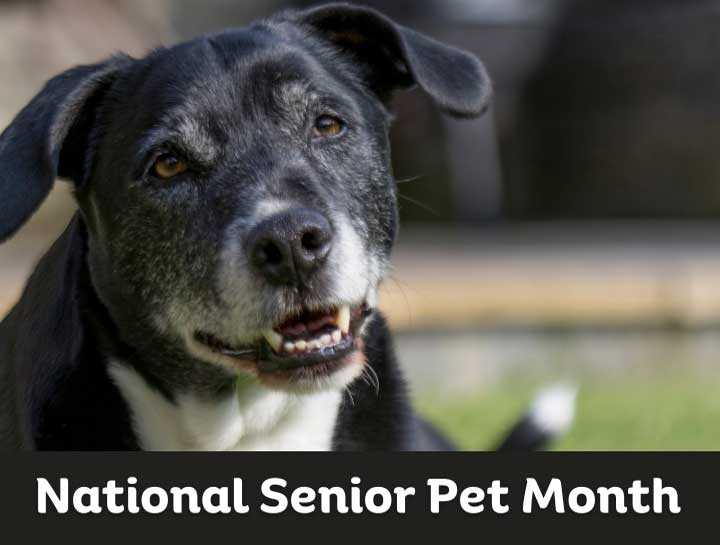Bydly Insights
Explore the latest news, trends, and insights across various topics.
Golden Years, Silver Whiskers: Caring for Senior Pets
Discover expert tips and heartfelt advice for nurturing your beloved senior pets through their golden years with love and care.
Essential Tips for Caring for Senior Pets: A Comprehensive Guide
Caring for senior pets requires special attention to their unique needs as they age. Regular veterinary check-ups are crucial, as they can help detect potential health issues early on. As a pet owner, consider adjusting their diet to include high-quality nutrition tailored for senior pets; this might mean incorporating softer food options that are easier to chew. Additionally, maintaining a consistent exercise routine is vital, but be mindful to adapt activities to their energy levels and mobility. Simple walks or gentle play can help keep your furry friend active while also promoting joint health.
Another essential tip is to create a comfortable living environment. Make sure your home is senior pet-friendly by providing soft bedding and easily accessible areas where they can relax. Consider using ramps or pet stairs if they are struggling to get onto furniture or into the car. Also, monitor their behavior closely; changes in appetite, bathroom habits, or energy levels may indicate a need for a vet visit. Lastly, shower your senior pet with love and attention—a good bond can help alleviate stress and anxiety that may come with aging.

Understanding the Common Health Issues in Aging Pets
As pets age, they become susceptible to a variety of health issues that can affect their quality of life. Common conditions include arthritis, which can cause pain and stiffness in their joints, and obesity, leading to severe health complications. Regular veterinary check-ups are essential for early detection and management of these issues. Additionally, dentistry problems such as periodontal disease can arise, impacting not only oral health but overall well-being. By staying informed about these conditions, pet owners can recognize warning signs and provide appropriate care to their aging companions.
Moreover, aging pets may also face challenges in cognitive function. Conditions like canine cognitive dysfunction can affect their behavior, causing disorientation and anxiety. Other common issues include kidney disease, which can lead to increased thirst and urination, and heart problems, which may manifest as coughing or lethargy. Understanding these health issues enables pet owners to make informed decisions about diets, exercise, and necessary veterinary interventions, ultimately ensuring that their beloved pets enjoy a comfortable and fulfilling life in their golden years.
How to Make Your Senior Pet's Golden Years Comfortable and Joyful
Caring for your senior pet involves understanding their unique needs as they age. One of the first steps is to create a comfortable living environment. Ensure their sleeping area is warm and cozy, with a soft bed that provides support for their joints. Consider adding ramps or non-slip mats to prevent slips and falls, which can be common in older animals. Regular veterinary check-ups are also crucial, as they allow you to monitor your pet's health and adjust their diet and exercise routine accordingly. Keeping a close eye on their weight can prevent many issues associated with aging.
In addition to physical comfort, providing mental stimulation is equally important for your senior pet's well-being. Engage them with interactive toys that encourage problem-solving and sensory play. Gentle walks or short play sessions can help maintain their physical health while boosting their mood. Socializing with other pets or even spending quality time with family can greatly enhance your pet's happiness. Remember, a proactive approach to your pet's care will ensure their golden years are filled with comfort and joy.